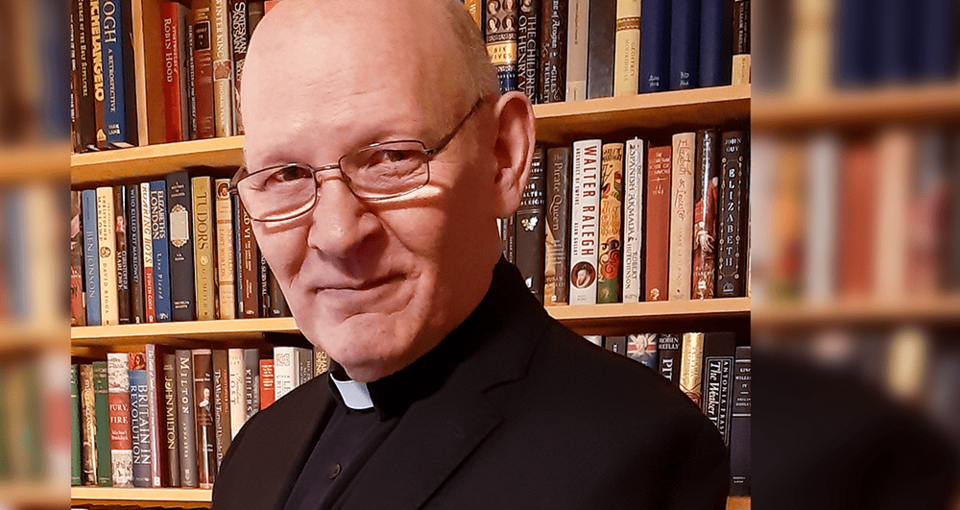In the October before the lockdown I was in London having lunch with the chaplain of one of Britain’s most famous and successful soccer teams. We discussed the challenges the players faced, and the inexorable pressures on young men who often had very little preparation for sudden heroism or, for that matter, instant demonization. His reply surprised me. Without, of course, giving any names, he said, “It can be hellish, almost beyond endurance. But it’s toughest for the gay players. They have to live a lie every day, every moment. It’ll take enormous strength for one of them to come out.”
It did. And it happened in May when Jake Daniels, a mere 17-year-old, decided that, “Now is the right time to do it … I feel like I am ready to tell people my story.” He continued, “Since I've come out to my family, my club and my teammates, that period of overthinking everything —and the stress it created — has gone. It was impacting my mental health. Now I am just confident and happy to be myself finally.”
The decision by Daniels, who plays for Blackpool in the Championship, the second level of English soccer, became headline news not only in Britain but also throughout the world. Which should be surprising, especially in a Europe that prides itself on its progressive attitudes towards sexuality. But this is sport, this is football, and this is different.
The handful of other players over the years who have come out have waited until they’ve retired, the most high profile being Thomas Hitzlsperger, who played for Aston Villa. The only British footballer to do so while still playing was Justin Fashanu, back in 1990. Eight years later he would take his own life.
Daniels has faced a joyously different reaction from colleagues, commentators, and football’s governing bodies. Tottenham and England striker Harry Kane wrote, “Massive credit to you and the way your friends, family, club, and captain have supported you.” Gary Lineker, the face of the English game to millions, said, “It’s been a brilliant season for you on the pitch, and now through your bravery, off the pitch too. I’m sure you’ll receive huge love and support from the football community and many others will follow your path. Good luck to you.”
I’m sure you’ll receive huge love and support from the football community and many others will follow your path
Fans, however, can be cruel. Football culture has become less violent and crude since the ugly 1970s but there is still racism, intense tribalism, and downright hatred. The deaths of supporters of opposing teams are sometimes mocked, Nazi gestures made at Tottenham with its large Jewish following, personal insults thrown at players and their families. It’s a filthy fringe, but it’s still there. Indeed, Daniels has already been targeted by online nasties.
Players are another issue and while the vast majority of them are likely to be indifferent or supportive, it would be naïve to think that homophobia, or at least discomfort, is unknown among young, largely working-class men. There are also foreign players who come from cultures where homosexuality is not accepted, even countries where it can lead to imprisonment.
Daniels is hardly unaware of all this, to the point of having assumed as a young man that his sexuality and his career simply couldn’t coexist.
“There are people out there in the same space as me that may not feel comfortable revealing their sexuality,” he said. “I just want to tell them that you don't have to change who you are, or how you should be, just to fit in.”
The timing, in every sense, is crisply appropriate. The season is about to end, everybody concerned can spend the summer reflecting on this young man’s courage and determination, and on a larger scale the wheels of tolerance and growth can spin a little most smoothly. But it’s vital to be realistic. Just the day before Daniels released his interview, a group of fans were arrested for anti-Semitic and racist gestures and chants. Hatred tends to find a way.
The former captain of the Welsh rugby team, Gareth Thomas, came out in 2009. He said, “Telling teammates I was gay was the toughest thing I’ve ever done,” and he’d been the victim of crunching tackles for decades! His coach said to him, “You can’t go through it alone, and these people love you.” He was right. They did, they do. I’ve no idea if Jake Daniels will be one of the truly great players, but he’s certainly one of the truly great men. Now it all changes. ◆




